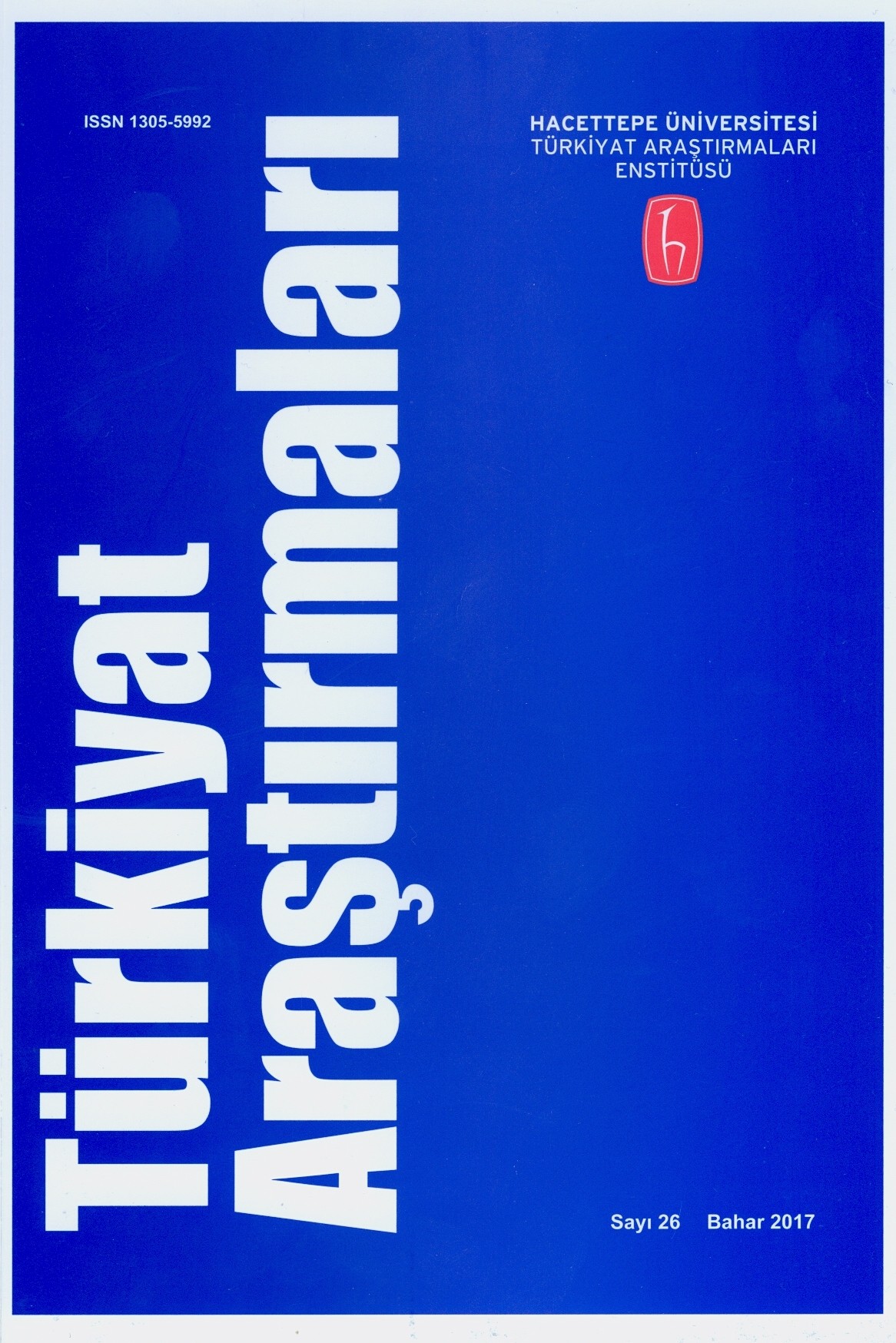Hölderlin’in Doğu ve Batı Arasında Kültürel-Tarihsel Bir Diyalog Fikri
Friedrich Hölderlin'in ana eseri, 1800 ve 1807 yılları arasında yazdığı şiirlerdir. Her şeyden önce şiir yoluyla yeni metafizik alana nüfuz etme çabası ve eserlerinin felsefi içeriği ile sadece genç Friedrich Nietzsche'yi değil, şair Rainer Maria Rilke ve filozof Martin Heidegger'i de etkilemiştir. Bu çalışma, Hölderlin'in geç dönem şiirlerinde dağılmış halde serimlenen bir izleği, kısaca Doğu ve Batı arasındaki ilişkiyi ele almaktadır. Bu şiirler (kısmen fragman biçiminde günümüze gelen) “Tuna'nın Kaynağında”, “Gezi” ve “İster”dir. Bu çalışma, bu iki kültür mecrası arasındaki ilişki konusunda Hölderlin’in kayda değer fikrini sözü edilen şiirlerden hareketle ortaya koymaya çalışmaktadır. Hölderlin’in gözünde insanlık tarihi, “alma-verme”ye dayalı bir etkileşime dayanır. Batı’nın görevi, öncesinde kendisi için belirleyici olan etkilerin (yazı, tek-tanrılı din, felsefe, Antik sanatlar) daha çok Doğu’dan gelmesinden sonra (1800 civarı), Doğudaki anlamlarına karşılık gelecek bir söylem geliştirmek olmuştur.
Anahtar Kelimeler:
Hölderlin, İlahiler, Doğu ve Batı, Şiir, Kültür
Hölderlin’s Idea of a Cultural-Historical Dialogue between Orient and Occident
Friedrich Hölderlin’s main work is his hymns, which he wrote between 1800 and 1807. What he mainly strived in these works was to penetrate new metaphysical territory through poetry, thus influencing not only the young Friedrich Nietzsche with the philosophical content of his works but also the poet Rainer Maria Rilke and the philosopher Martin Heidegger. This paper discusses the link between Orient and Occident, a topic of Hölderlin's Hymns that is scattered throughout his work. The paper examines the relevant verses in the (partially fragmented) hymns “At the Source of the Danube”, “Wandering,” and “The Ister”. Based on the poems cited, this study aims to reassemble Hölderlin's idealized vision of the interactions between these two cultures who thinks that “take and give” interactions have shaped human history and that, after the West received decisive influences from the East (writing, monotheistic religion or Christianity, philosophy, the ancient arts), it is the West’s task to form a contemporary (around 1800) Western discourse with the help of these gifts from the Orient.
Keywords:
Hölderlin, hymns, Orient and Occident, poems, culture,
___
- Heidegger Martin (1984). Hölderlins Hymne "Der Ister". Frankfurt/M.: Vittorio Klostermann Verlag.
- Hölderlin Friedrich (2002). Friedrich Hölderlin - Hyperion and Selected Poems. By Eric L. Santner (Hrsg.) New York: The Continuum Publishing Company.
- Hölderlin Friedrich (2020). Friedrich Hölderlin Gedichte - Eine Auswahl. Stuttgart: Reclam Verlag.
- Hörisch Jochen (1998). Kopf oder Zahl, Die Poesie des Geldes. Frankfurt/M.: Surkamp Verlag.
- Hörisch Jochen (2009). Bedeutsamkeit. München: Hanser Verlag.
- Kreuzer, J. (Hrsg). (2011). Hölderlin - Handbuch: Leben - Werk - Wirkung. Stuttgart, Weimar: Verlag J. B. Metzler.
- Pellegrini Alessandro (1965). Friedrich Hölderlin: Sein Bild in der Forschung. Berlin: Verlag Walter de Gruyter.
- Roth, S. (1991). Friedrich Hölderlin und die deutsche Frühromantik. Stuttgart: J.B. Metzler.
- Suglia Joseph (2004). Hölderlin and Blanchot on Self-sacrifice. Frankfurt/M: Verlag Peter Lang.
- Wackwitz, S. (1997). Friedrich Hölderlin. Stuttgart, Weimar: J.B. Metzler.
- ISSN: 1305-5992
- Yayın Aralığı: Yılda 2 Sayı
- Başlangıç: 2004
- Yayıncı: Hacettepe Üniversitesi
Sayıdaki Diğer Makaleler
BOŞNAKLARA YABANCI DİL OLARAK TÜRKÇE ÖĞRETİMİNDE KÜLTÜRÜN ROLÜ
KARŞIOLGUSAL VE HAYALÎ KOŞUL CÜMLELERİ ÜZERİNE
OSMANLININ YAYCILARI: İSTANBUL’DA YAY İMALATI VE TİCARETİ (1010 - 1059 / 1601 - 1649)
KIBRIS’TAKİ 2019 AVRUPA PARLAMENTOSU SEÇİMLERİNDE TÜRKLER
DOÇ. DR. SERHAT KÜÇÜK (29 EKİM 1977 - 31 OCAK 2023)
Hölderlin’in Doğu ve Batı Arasında Kültürel-Tarihsel Bir Diyalog Fikri
AKADEMİK TÜRKÇE SÖZCÜK LİSTESİ OLUŞTURMA ÜZERİNE DERLEMDEN ÖĞRETİME KURAMSAL TARTIŞMALAR
YENİ BİLGİLER IŞIĞINDA ERKEN SAKA DÖNEMİNDE KAZAKİSTAN’DA İÇİNE KIVRILMIŞ KAR PARSI BETİMLEMELERİ
20. Yüzyılın İkinci Yarısında Arap-İsrail Çatışması: Blok Siyaseti ve Türkiye
EVLERE ŞENLİK KAYNANAM NASIL KUDURDU? ROMANINDA KADIN VE TOPLUMSAL CİNSİYET ELEŞTİRİSİ
